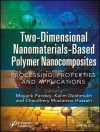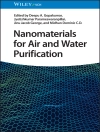Adopting a unique approach, this book provides a thorough, one-stop introduction to nanoscience and self-assembly of nanomaterials composed of such materials as metals, metal oxides, metal sulphides, polymers, and biopolymers.
Clearly divided into three sections covering the main aspects of nanoscience, the first part deals with the basic principles of nanoscale science. Alongside essential approaches and forces, this section also covers thermodynamics, phase transitions, and applications to biological systems. The second and third parts then go on to provide a detailed description of the synthesis of inorganic and organic nanoparticles, respectively.
With its interdisciplinary content of importance to many different branches of nanoscience, this is essential reading for material scientists, physicists, biophysical chemists, chemical engineers, and biotechnologists alike.
สารบัญ
PART I: NANOSCALE SCIENCE
INTRODUCTION
ESSENTIAL APPROACHES AND FORCES
Top-down Approach
Bottom-up Approach
Aggregation of Nanoparticles
Smoluchowski Aggregation Kinetics
DLVO Theory
Lennard-Jones Potential
Hydrogen Bonding
Hydrophobic Interactions
Steric Forces
THERMODYNAMICS OF NANO SYSTEMS
Thermodynamics at Nanoscale
Laws of Thermodynamics
Concept of Entropy
Gibbs Equation
Thermodynamic Properties
PHASE TRANSITIONS AND STABILITY AT NANOSCALE
Generalized Observations
Formation of Metastable Phases
Stability of Small Objects
Chemical Reactions in Nanosystems
INTERACTIONS WITH BIOMOLECULES AND APPLICATIONS TO BIOLOGY
Quantum Dot-Protein Interaction
Nanoclay-Protein Interaction
DNA-nanoclay Interaction
Size dependent effect on enzymatic activity
Applications to Biology
PART II: BOTTOM-UP ASSEMBLY OF INORGANIC NANOPARTICLES
METAL NANOPARTICLES
Gold Nanoparticles
Silver Nanoparticles
Palladium Nanoparticles
Platinum Nanoparticles
Samarium Nanoparticles
Copper Nanoparticles
Cobalt Nanoparticles
Nickel Nanoparticles
Bismuth Nanoparticles
Aluminum Nanoparticles
Lead Nanoparticles
METAL OXIDE NANOPARTICLES
Alumina Nanoparticles
Antimony Oxide
Cobalt Oxide Nanoparticles
Copper Oxide Nanoparticles
Cerium Oxide
Indium Oxide Nanoparticles
Iron Oxide Nanoparticles
Lanthanum Oxide
Magnesium Oxide Nanoparticles
Neodymium oxide
Nickel Oxide
Samarium Oxide
Silica Nanoparticles
Titanium Dioxide Nanoparticles
Tin Oxide Nanoparticles
Zinc Oxide
Zirconium Nanoparticles
PART III: SELF-ASSEMBLY OF ORGANIC NANOPARTICLES
POLYMERIC NANOPARTICLES
Polyethylene glycol (PEG)
Polylactic Acid (PLA) Nanoparticles
PNIPAMNanoparticles
Poly(b-amino ester)s Nanoparticles
Poly (D, L-lactide-co-glycolic acid) (PLGA) Nanoparticles
Poly(methyl methacrylate) (PMMA)
Polyurethane
Polystyrene NPs
Ethyl Cellulose
Polyacrylamide
Poly(vinylpyrrolidone)
Poly (e-caprolactone)
Poly(vinyl alcohol)
BIOPOLYMERIC NANOPARTICLES
Albumin Nanoparticles
Alginate-BSA Nanoparticles
BSA-Acacia Nanoparticles
Chitosan Nanoparticles
Tripolyphosphate-Chitosan Nanoparticles
si RNA-chitosan nanoparticles
DNA-chitosan Nanoparticles
Gelatin Nano- and Micro-particles
Heparin Nanoparticles
Heparin-Chitosan Nanoparticles
Heparin-Deoxycholic Acid Nanoparticles
Heparin-poly(b-benzyl-L-aspartate) Nanoparticles
Hyaluronic Acid Nanoparticles
Nucleic Acid Nanoparticles
Pectin Nanoparticles
Pectin-Cisplatin nanoconjugate
Silk Protein Nanoparticles
Zein Nanoparticles
เกี่ยวกับผู้แต่ง
Himadri B. Bohidar is a Professor in the School of Physical Sciences and Special Centre for Nano Sciences at Jawaharlal Nehru University in New Delhi, India. He received his Ph.D. in Physics from the Indian Institute of Technology Delhi, in New Delhi, India. Since 2012, he has been the Chairperson of the Special Center for Nanosciences at Jawaharlal Nehru University, which is a collaboration of different schools, actively pursuing research that encompasses many aspects of nanoscience and technology. Prof. Bohidar’s main research areas are polymer physics, molecular biophysics, soft matter physics, and nanostructure assembly.
Kamla Rawat is a Department of Science and Technology, Government of India, INSPIRE Faculty member, at the Inter University Accelerator Center, in New Delhi, India. She received her Ph.D. in Physical Chemistry from Jawaharlal Nehru University, in New Delhi, India. Between 2012-2016 she has been actively pursuing research that covers many aspects of nanoscience and technology. Dr. Rawat’s research interests include soft condensed matter, low-dimensional architectures, nanosciences, supramolecular self-assembled systems, and bio-inspired green chemistry.












